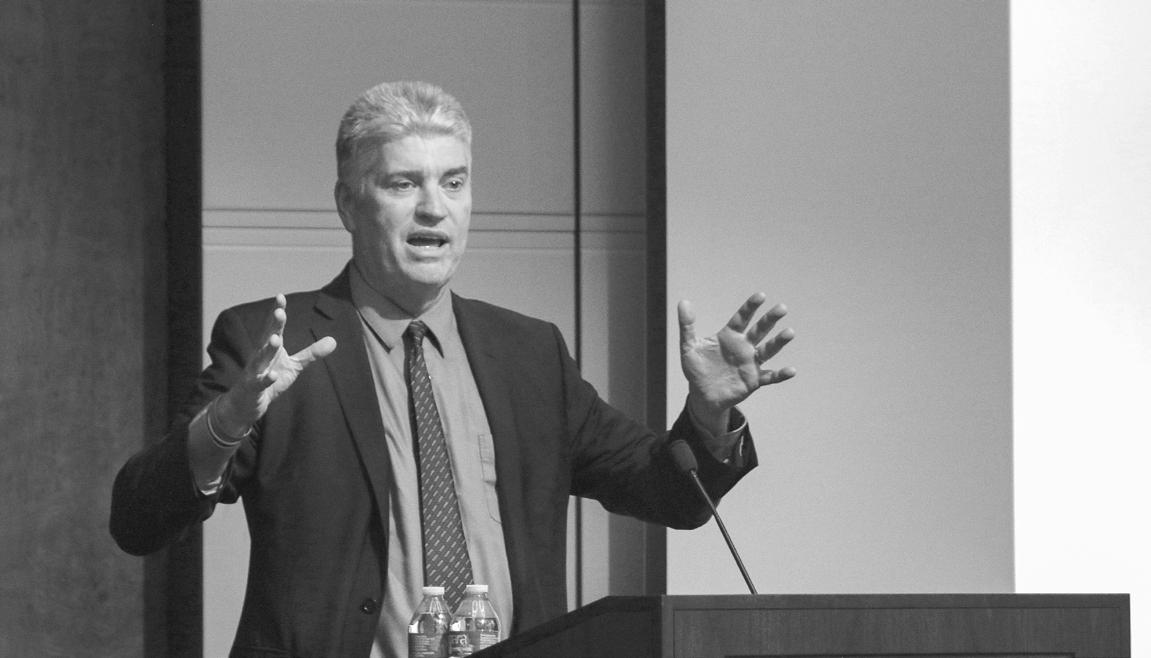
5 minute read
Housing concerns resurface amidst annual flood of Oldenborg applications
On Feb. 13, applications for housing at Pomona College’s Oldenborg Language Halls opened for rising sophomores, juniors and seniors. However, many students report applying to Oldenborg out of necessity rather than for its language offerings because it is one of the few residence halls at Pomona that offers single rooms and air conditioning.
Paul Cahill, director of Oldenborg, and Tamara Olivos, assistant director of Oldenborg, affirmed in an email to TSL that Oldenborg directors look for students who have interest in one of the languages offered and in the culture of the hall in order to create a sense of community.
Advertisement
“We consider this to be a key part of students becoming active participants in the Oldenborg community,” they said via email.
Anisa Ketlekha PO ’26 pointed out, however, that because Oldenborg has nicer facilities than other sophomore dorms, students apply for reasons other than language.
“If other dorms are better, and have AC and nice rooms, people wouldn’t [stress as much to get into Oldenborg] by faking that they want to study a language,” Ketlekah said. “Especially the people who are applying to multiple language halls, they might not put as much effort into applying to one single language hall, compared to me who is [putting] all my effort into applying only for [the] Japanese [hall].”
Max Feng PO ’26 explained that he wants to apply to Oldenborg to secure his chances to live in a residence hall with good facilities.
“If I don’t apply for Oldenborg, then I might not know where I’m gonna live [next academic year],” Feng said.
Oldenborg’s selection process has two steps. The first step involves deciding which students would be assigned room draw numbers based on their applications, and the second step uses a random process to generate room draw numbers. According to Cahill and Olivos, the random process is used to mitigate any unfairness that could occur by individually ranking students.” consequences in the United States.
Currently, Pomona reserves a section of Oldenborg’s rooms for quarantined students. Cahill and Olivos confirmed that Oldenborg will continue to serve as a quarantine space in the 2023-2024 academic year.


However, Ketlekha expressed that due to Oldenborg’s popularity among students, those quarantine rooms should be for residence instead.
“[Since quarantine] is temporary … those rooms can [instead house] people [who want to live in Oldenborg] for the whole year, [especially when] Oldenborg rooms are nice,” Ketlekha said.
“How many people from Russia are right here in this room right now? Not a single one,” Horban said. “If they don’t support their president, they’re safe enough to express their political opinions here. It’s not Putin’s war in Ukraine, it’s Russia’s war in Ukraine.”
Hilary Appel, a CMC government professor with an expertise in Russian politics, further clarified the potential repercussions Russian citizens can face for speaking out against the war, including facing lengthy prison sentences for their dissent.
“Russians abroad can express dissent as long as they are not returning home. The big fear is personal arrest inside of Russia,” she said to TSL via email.
Shishkina wished Russian students privately opposed to the war would do what Ukrainian students publicly do. She referred to an art stand that she and several other Ukrainian students ran on Feb. 26 at the Claremont Farmers & Artisans Market. They gave out art to fundraise for generators at Ukrainian hospitals, as they did at the Q&A session.
“Fundraising, speaking out about it, creating conferences, engagement fairs [and] garage sales like the farmer’s market,” she said about event ideas that Russian students could host to support Ukrainian students.
Ukrainian students at the Q&A encouraged attendees to donate what they can to their fundraiser and to follow the news. Ukrainian students suggested the Kyiv Independent and Kyiv Post as credible news for English-speaking students to use to learn about updates on the war.
During the vigil, many of the organizers wanted to emphasize the importance of language used to describe the Russian invasion. Shishkina intentionally used the word “genocide” to describe Russia’s invasion. Latimer felt the term “war” did not adequately capture the global economic implications of the conflict for Ukraine.
“There are so many factors within this war that lead towards actual international catastrophe,” Latimer said. “[Ukraine’s] resources … are just burning away … The word ‘war’ kind of swallows so many details.”
For the student organizers, they hope attendees can take away that the conflict between Russia and Ukraine is most clearly one about sovereignty and autonomy.
“Remember that Russia is not doing this because they want the best for Ukrainians … they want to eradicate a lot of cultural components,” Saratova said.
JUNE HSU
Justin Brooks, director and co-founder of the California Innocence Project (CIP), spoke at the Claremont McKenna College Athenaeum on Tuesday, Feb. 28. He presented his new book “You Might Go to Prison, Even Though You’re Innocent” and its focus on the causes of wrongful convictions.

The CIP is a branch of the larger Innocence Project, a nonprofit organization founded in 1992 that provides pro-bono legal services to exonerate individuals maintaining innocence. Innocence Project is also a subgroup of the global Innocence Network, which consists of 71 organizations around the world.
In his presentation, Brooks discussed the chapters of his book, which outline the various reasons a person may be wrongfully convicted ranging from Chapter 1, “You Hired the Wrong Lawyer (Pleas with No Bargain)” to Chapter 10, “You Are Poor and/or a Person of Color.” He accompanied the discussions of each chapter with past cases in which now-exonerated clients were wrongfully convicted.
“I think it’s human nature to not believe in wrongful convictions,” Brooks said. “Because then you have to believe that one day you might be wrongfully convicted.”
Brooks explained that he founded the CIP after reading about the case of Marilyn Mulero, a woman sentenced to death row on a plea bargain. Mulero maintained her innocence and Brooks recruited his law students at California Western School of Law to help him work on her case.
“I said, ‘Who wants to help me out?’ and four brave souls raised their hands,” Brooks said. “That night they came over to my house, we sat down at the kitchen table and started going through the police reports and started putting the case together. That night, for me, the Innocence Project was born.”
The CIP’s clients have collectively spent more than 570 years wrongfully incarcerated, according to the California Innocence Project’s website. Along with providing pro-bono legal work, the CIP also works on law reform, having successfully passed multiple bills to prevent wrongful convictions in the future.
Despite the complicated legal work that the CIP does, Brooks offers his professional knowledge and experience to the public through his book. He aims to explain the issues surrounding wrongful convictions in an accessible way. “I tried to write this book in a way that anybody could read it and understand this stuff,” Brooks said. “Not make it overly legalistic, not make it overly scientific.”
Students like Olivia Carusi CM ’24 affirmed that the clarity of the book is helpful to readers looking to become more involved in the criminal justice system.
“I think it’s so easy for even people who consider themselves to be well-versed in some legal terms or state policies [to] get easily intimidated by police officers and interrogation techniques,” Carusi said. “It is important to just say these things in simple terms so that other people can understand them and also understand what’s wrong with the system.”
Carusi added that she was deeply impressed by Brooks’ work at the CIP, and was optimistic about the potential the institution has to challenge preconceived ideas about incarceration and criminal justice.
“Seeing something like the Innocence Project that works within the system to also help change the system, or at least introduce more justice into a faulty system, is really inspiring,” she said.






